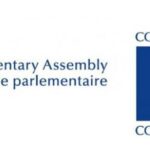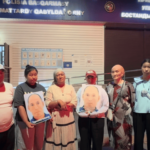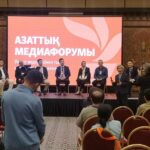Civic Solidarity Platform members regret that the EU High Representative during her visit to
Between 27 and 30 November 2012, Baroness Catherine Ashton, High Representative of the European Union for Foreign Affairs and Security Policy, undertook her first official visit to four republics in Central Asia; Kyrgyzstan, Uzbekistan, Tajikistan and Kazakhstan.
Among those following her visit was the Civic Solidarity Platform, an international network of human rights organizations operating across Europe and the former
Official visits on this level are a relatively rare occurrence in
The EU Strategic Framework and Action Plan on Human Rights and Democracy reinforced treaty obligations for EU institutions to “place human rights at the centre of its relations with all third countries”. While Ashton’s discussions with heads of state were closed to the public, her public speeches bore witness of a one-sided focus on energy and security, and a lack of understanding of the crucial period human rights defenders are currently undergoing in
By refraining to denounce serious human rights violations, especially in the High Representative’s statement after the visit to
The visit contrasts sharply with the international recognition the EU received on 12 October 2012, when the Norwegian Nobel Committee announced that the Nobel Peace Prize for 2012 is to be awarded to the European Union. In its announcement, the Nobel Committee pointed to the role the European Union has played in the advancement of peace and reconciliation, democracy and human rights.
In the twenty-three years that have passed since the fall of the Berlin Wall, the European Union and its member states have done considerable work to promote respect for human rights and democratic values in
Civic Solidarity Platform members consider that the visit of Baroness Catherine Ashton to
These values demand that high-ranking European officials dare to ask the difficult questions, on behalf of those few who try every day to raise them on their own with considerable threat to personal safety and security. The human rights situation in
• The lack of any investigation into the 2005 Andijan events in
• The systematic use of torture in Uzbekistani jails
• Long prison sentences without evidence for ethnic Uzbeks in the south of
• The wrongful imprisonment of human rights defender Azimzhan Askarov on the basis of politically motivated charges linked to 2010 violent clashes in the south of
• The imprisonment of 7 ½ years of Kazakhstani opposition leader Vladimir Kozlov linked to his public comments on the Zhanaozen protests and violence in 2011
• The lack of a legal base for closing independent media in
• The blocking of Facebook by Tajikistani authorities this month,
• The disproportionate use of force, including the killing of civilians, as part of a police investigation in Gorno-Badakshan in
Only through a consistent, no-negotiations approach to human rights will Central Asia reach its true potential, and only when human rights are respected can Central Asia become a reliable counterpart to the EU – in security, in energy, and in partnership.
Civic Solidarity Platform was established in December 2011 to bring together non-governmental organizations to improve the human rights situation in Europe, Eurasia and the

















